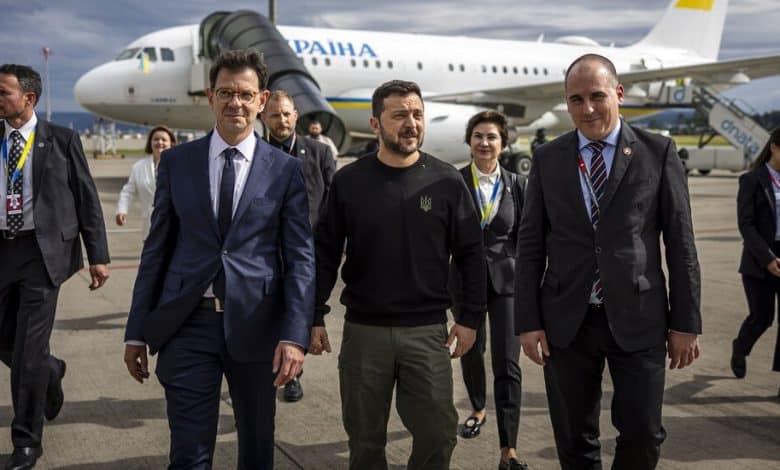Ukraine Hosts Peace Talks in Switzerland, Though Russia Isn’t Invited

What is the value of peace talks that aren’t actually talks between the warring sides?
President Volodymyr Zelensky of Ukraine was due to open a peace conference in Switzerland on Saturday that is intended to shore up support for his country’s negotiating positions with backing from as many nations as possible. Yet even as the two-day gathering has emerged as the most widely embraced diplomatic effort to date to end the war, for now, the effort excludes Russia.
The conference, at an Alpine resort near Lucerne, Switzerland, is instead a show of support for some of the points that Ukraine has laid out in its proposal and that it has asserted are necessary to bring a lasting peace. The plan has drawn criticism from some countries, like China and Brazil, that say Russia and Ukraine need to negotiate directly for any chance to end the fighting.
“You don’t negotiate with your friends,” Celso Amorim, a chief foreign policy adviser for President Luiz Inácio Lula da Silva of Brazil, said in an interview. “You negotiate with your adversaries.”
Mr. Zelensky has said that Ukraine’s intention is to negotiate with Russia collectively — after building consensus among Kyiv’s allies and as many neutral nations as possible. Mr. Zelensky’s 10-point peace plan involves Russia’s withdrawing in full from Ukrainian territory, paying reparations and facing justice over any war crimes.
On Friday, President Vladimir V. Putin of Russia offered his own cease-fire plan, calling for Ukraine to cede territory and for Western nations to lift their economic sanctions. Ukraine denounced Mr. Putin’s suggestion as intended to undermine the weekend’s talks.
As Ukraine worked to build momentum for the Swiss conference this year, it promoted a gathering that could endorse all 10 of its negotiating positions. But it then dialed them back to three — nuclear safety, food security, and humanitarian issues like exchanging prisoners of war and returning Ukrainian children unlawfully taken to Russia — to draw in countries that were reluctant to endorse the points deemed less feasible.
